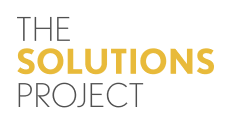Breaking Down Political Jargon
Earlier this month, SCOPE spent a week with students enrolled in Antioch University’s urban sustainability program to explore the history of taxes, the L.A. City budget, economic justice issues in South L.A., and the important work of making the political process accessible to members of our communities.
I interviewed Dr. Gilda Haas, urban planner, organizer, and professor at Antioch University, about her website Dr. Pop, which focuses on political literacy. Dr. Pop breaks down complex ideas through videos, design, and other tools that help folks visualize and understand what the jargon means and how that understanding can inspire active involvement in creating real community change.
Laura Muraida: Who is the audience for Dr. Pop, and how should visitors make best use of the vast material and tools you provide for understanding urban issues?
Gilda Haas: The site is for people who work with people. For example, teachers and educators. Maybe you’re a high school teacher and you want to explain the financial meltdown to your students. But you’re not an economist. Our videos can help you learn more about the complexities of the economy and urban development. We start by breaking down the community planning process by spelling out acronyms, and other phrases that don’t mean anything to general readers.
We’re a diverse team, which increases our knowledge base. So if someone asks, “Hey, Dr. Pop, can you explain the Black Hole?” I’d have to say no because I don’t know about that stuff. But our team might. And putting together that kind of material has currency for us and it would be exciting to do it. We have a lot of content; right now, we’re in the process of re-organizing all of it so that the site is easier to search.
How do you decide what issues to tackle? Are you primarily interested in taking on more complex concepts, or do you try to stay in sync with the news cycle?
I’m trying to work more toward collaborative projects with people. For example, a couple of our bloggers are working toward their doctorates and they’ve produced a lot of research—not all of it scholarly, and therefore not of interest to the academy. For example, writings about popular education. Or, to use another, one of our members works on restorative justice issues and alternatives to incarceration. But most people don’t know what that means. Creating accessible definitions of these topics can create a lot of hope in a lot of different ways.
We have another person working with Dr. Pop who is researching issues around race in Los Angeles, and found out that a Black newspaper from the 60s, California Eagle, published instances of homes that were firebombed and residents who were threatened by having burning crosses waved at them or places on their properties.
And a lot of this took place in my neighborhood because it was so mixed. This would be an interesting thing to map out. Because it’s really hard to see the history of a place, what it means, how change happens and how there have always been powerful pushback. Many folks believe that this is just something that would happen in Alabama. But no—those kinds of actions happened frequently in L.A., too. I’m really interested in figuring out how to collaborate with some of our bloggers and organizations that we work with in producing something that everybody could use and making it available.
Does the site have a larger viewership?
It doesn’t get a huge amount as we would like.
But we don’t post every day, or even every week. We’re not that kind of a place. We’re all volunteers, inspired by a sense of curiosity and creativity. So what we try to do is get it out to people who can use it. We try to be more strategic about reaching the people who need this kind of content help the most.
What content has been the most popular so far?
It really depends. When we started in 2009 right after the big meltdown, most people were coming to the site to learn more about it. To read the how-to steps, how to make informed decisions, write blog posts, do research, and learn how the system is organized. Things that solve the problem they have.
How can people contribute?
We have guest bloggers. We invite them by inviting them to sit in on a Skype call focused on a particular theme. Then we ask them to pitch ideas based on their interpretation of that theme. So, for our “big water” theme, one of our contributors created a graphic novel and comic book series. The idea is to come up with pop cultural forms that take on any kind of political issue, and often the ideas stem from personal experiences and interests.
For our utopia theme, someone happened to be an expert on Allensworth, an African-American utopian community in California, and we were like, oh my God, can you write about that? She did, and that was a piece we never could have generated without our extended community of bloggers.













